- Home
- Steve Vernon
Haunted Harbours Page 7
Haunted Harbours Read online
Page 7
One fine Nova Scotia morning, Willis Dougall set out for the town of Antigonish, accompanied by his brother, Dane. They decided to ride along the sunny reaches of the harbour. They rode up and over and down the steep rugged North River hill through the level stretches around the landing where the ships came in. They paused once by a traveller’s cairn to lay a stone for luck. This was an old custom, still practised in other parts of the world. Folks passing by would lay a rock on the cairn, and as you passed by, you would lay one too. Thus luck was shared, for a wanderer’s fate is always written in stones. Besides, it was an excellent way to make sure that the path was always cleared of stones.
The two brothers then rode up the long and torturous slope of Mount Cameron, until they finally came to the quiet little town of Antigonish.
There, Dane and Willis parted ways, swearing that they’d meet in the afternoon, once they’d properly fortified themselves for the long ride home. Dane went to the parsonage for a blessing for the road, while Willis headed straight for the local tavern.
Well, a promise easily made is even more easily broken, and by the late afternoon Dane was still waiting impatiently for Willis. Finally, he hunted his brother down in the tavern where young Willis was attempting to drink Antigonish dry. Willis was as sod-den and maudlin as a drunkard could be. “I’m no good,” he moaned. “You should leave me here in the tavern with the rest of the riff-raff.”
But Dane would hear nothing of the sort. “I promised Mother I’d see you safe and home and promises are made to be kept,” he said, feeling a little smug about his own high moral standards. After much effort, Dane finally managed to hoist his drunken brother up onto his horse, and he led him off homeward.
The trouble came when they came to the North River Hill traveller’s cairn.
“Stop the horse, stop the horse,” Willis protested.
“Will you be laying a rock, then?” Dane asked.
“No,” Willis said. “I have to make a wee warm rain.”
Now the North River Hills are no place to be stopping on the night of a full moon, for the hills were known to be haunted by ghosts and spirits alike. Some claim that there is a doorway to hell hidden somewhere on these hills.
“Don’t be peeing on the traveller’s rocks!”
“And why not?” Willis retorted. “What else are they good for?”
And so Willis made his wee warm rain upon the traveller’s cairn.
As they rode down towards the harbour they felt as if they were being followed. They looked back and saw that a big black dog, long of shank and heavy of head, was trailing them over the hills.
“It’s the black dog,” Dane swore.
Willis sobered slightly at the sight of this great black hound. He had heard his grandfather tell tales of the black dog that would stand outside your door and warn you of your impending death. The devil’s hound, some folks called it.
They tried to drive the hound off by hurling rocks and broken branches, but they had no luck; the beast kept after them.
They rode hard over the hills. Two hours later they’d managed to reach the shelter of Dane’s cabin. Dane lit a fire in the fireplace and laid his brother on his very own bed.
“It’s come for me,” Willis said.
The black dog set up an unholy clamour, baying and banging its paws against the outer door.
“For you or for me or for both of us — it does not matter. I’ve sworn to protect you, and no hound of hell will cause me to break my word.” With that, Dane barred the door and fired a blast from his musket out of the window slit at the black dog, to no avail.
The dog kept watch. All grew silent. After a time, as the darkness of the night increased, the brothers thought they were safe. Then, as if he’d always been sitting there, the black dog stepped out of the shadows of the bedroom.
Stunned, Dane threw an iron poker at the hound, but he might as well have been tossing goose feathers at the beast. The big dog made for the bed. It was Willis he was after.
“I’m done for,” Willis moaned.
“Not so long as I draw breath,” Dane swore. “A brother is a brother.” He ran and grabbed his father’s claymore from above the fireplace. A great long sword used by the Scottish highlanders at the battle of Culloden, it made a suitable axe, perfect for cleaving off the heads of your enemies. The hilt was still stained with Dane’s grandfather’s blood. Since then the sword had been blessed by a saint, a bishop, and a beggar. Dane hoisted it up in both of his hands.
“The Lord is my shepherd,” he shouted. “I shall not want.”
Dane chased the black dog from the house, shouting the Lord’s Prayer and the twenty-third psalm at the top of his lungs, along with a half a dozen salty Highland curses. He chased the dog out into the night and for a long time afterwards, everything was deadly still. Willis cowered in his brother’s bed, whispering a prayer over and over to himself.
Later the next day, they found Dane’s claymore on the North River Hill, imbedded deep in the dirt directly next to the traveller’s cairn.
Dane was never seen again, and Willis died three years later, never touching a drink nor breaking a promise again. He spent his last three years searching the North River Hill, and some say that he died near that cairn, where his spirit walks the night, still searching for the remains of his long-lost brother.
15
THE CAPE NORTH
SELKIE
CAPE NORTH
The old folk tell us that when the angels fell from heaven, some fell on the land and some fell upon the sea. Those that fell upon the land became fairies, and those that fell upon the sea became the selkie.
The selkie are a race of seal-people, who live in the ocean as seals, but periodically return to the shore to frolic as humans. Sometimes a selkie will marry a mortal man or woman, and then they can never return to the sea, lest the seal form take and trap them.
I heard this tale of the selkie from an old Cape Breton woman. We were standing on a beach when she told it to me, and even now, as I write these words, I can still recall the screeling of the fishing gulls and the soft-talking hush of the rolling Atlantic waves.
They say that there’s a tale for every wave that washes the shores of Cape Breton.
This is one of them.
Angus Lochaber was a poor but proud man who made a living on the shores of Cape North, just a little ways out of the town of Bay St. Lawrence. One morning he was out digging in the tidal flats for bloodworms, the best live bait a man could ever dream of fishing with. At the same time he was gathering a pile of driftwood, good for burning since firewood was hard to come by. It was early in the day and the tide was slipping away. A man had to have his wits about him on the mud flats, though. If he lost track of the time, that tide might catch him, and a wayward current might pull him under. The mud flats were where the land dreamed of the sea, and it was not a particularly safe place to linger.
Angus wasn’t worried. He’d worked these lands since he was a boy, and he felt as safe as houses out here on the mud flats. He bent and pried out what looked to be a part of a keel, when he heard the sound of a small child crying.
“It’s the sea birds,” he told himself. “They’re crying out there for fish.”
But it wasn’t the sea birds.
The sound seemed to be coming from a little nook in the rocks. Angus clambered over the rocks, following the sound, his quest for firewood and worms momentarily forgotten.
The sound got louder, rising and falling, nearly human in its tone. Angus slid down a oblong boulder and finally found what was making the strange cries. It was a small gray seal trapped in a pool by the receding tide and a shifting rock that had pinned it to the shore. The gray seal looked up at Angus and its eyes were soft and brown and full of tears.
“Since when does a seal know how to cry?” Angus wondered aloud.
He bent and put his weight against the rock, prying it off the gray seal’s back. He scooped and hoisted the seal up and out of the tide pool, w
hen to his astonishment, the animal reared itself upright and its soft gray pelt slid away. Angus caught it instinctively.
Now, standing before him was the most beautiful woman he could imagine. She was tall and wild and fey with hair tumbling down like auburn waterfalls, tangled with seaweed and bits of deepwater shell. She stared up at him with eyes as gray as the November Atlantic. She was shaking, but somehow Angus knew that she was not afraid.
“You’ve caught me, man of the land —caught me by the code and the law of the sea. You hold my pelt, and so long as you do, I am yours to command.”
Angus looked at his unexpected prize. She was a selkie, he knew that. He had heard the tales of how you could keep a selkie by hiding her pelt, how you could bind them to the land and forbid them the sea.
“Then I must give this back to you,” he said, handing her the pelt. “For I cannot hold such a wild, free thing as you. You belong to the sea. I give you back to her.”
She stared at him, her eyes as wide as the sky and the sea and all that stretches beyond them.
She took the pelt carefully from his hands, and as her hand brushed his, Angus thought to himself that her touch was even softer than the pelt had been.
“You have done a kind thing today, Angus Lochaber,” the sea woman said. “The sea remembers longer than the land can ever forget.”
And then she kissed him, just once on the cheek, and it was softer yet than anything Angus had ever dreamed of.
Three years passed, and Angus found himself a wife. Her name was Marjorie and she was a good woman. She was neither beautiful nor enchanting, but she made fine biscuits and listened intently to Angus’s talk of the sea and his days.
Three more years passed and Marjorie gave birth to a son, a fine young boy that they named Milton. His hair was thick, even at birth, and there was something in it that reminded Angus of the tossing waves.
“This is a good life,” Angus said to his wife. “What more could a man ask for?”
Angus loved his family with the heart of a man who has done without for all of his life. Yet sometimes at night when the wind blew soft and cool from the Atlantic waves, Angus would stand at the door of his shanty and stare into the darkness, dreaming of a long-haired woman with eyes as gray as the November storms.
In three more years Angus and Marjorie were given another child, a girl they named Mairgret, in honour of Marjorie’s grandmother. For a long time all was well. Then one fine April morning Marjorie, Milton, and baby Mairgret were down on the beach gathering kelp. They’d been at it all morning, and had lost track of the time. The ocean had stolen up on them, and before they realized it, they were cut off from land.
They took shelter on a small rocky knoll, but Marjorie knew well enough that before too long, the tide would cover that as well.
“Let’s pretend it’s night time,” Marjorie said. “Say your prayers, young Milton. Say your prayers for sleep is near.”
“But I don’t want to go to sleep, Mother,” said Milton.
“We’re just pretending,” said Marjorie.
The ocean came up, slow and creeping, the waters cold and merciless. Marjorie stood up as tall as she could, holding baby Mairgret in her arms with young Milton balanced high upon her shoulders.
“What fun this is!” Marjorie said, doing her best to keep her fear from the children.
“Momma, I’m scared,” said Milton, teetering upon her shoulders.
“No, this is fun,” Marjorie said. “Playing in the sea like this.”
“Oh look, Momma!” Milton said. “Seals. See them swimming.”
Marjorie looked out and sure enough, there they were. Dozens of them, swimming towards her rocky perch. The seals clambered up onto the rock. Marjorie had never seen so many seals so close before.
One great grey seal swam into Marjorie’s legs, doing its best to knock her over. She fought the seal just as hard as she could but the other seals joined in. It was difficult trying to keep her balance, while also trying to kick free from the seals’ apparent attack.
“What do you want?” Marjorie screamed, as if she expected an answer.
Then her feet slipped on the wet rock, and she felt the water rising up about her. Milton toppled off her shoulders and she reached for him, dropping baby Mairgret.
“Mairgret,” she screamed, and then Marjorie was in the water as well.
Marjorie had just enough time to catch one good breath and then she was under. The seals were all around her in the water, moving like sleek dark eels. She felt frightened of them. She’d never known a seal to attack a human, but an animal was an animal.
She tried to keep herself afloat and at the same time retrieve her children. It was an impossible task; the ocean was unforgiving. She gave up hope and was just about to open her mouth and let herself drown when she felt something moving beneath her. It was three seals, guiding her upward to the surface.
She looked around in utter confusion, not believing her eyes. There was Milton, atop a great bull seal, and baby Mairgret hanging tight-fisted to a grey seal’s velvety hide. The seals carried Marjorie and her children back to the shore.
Safely back on land, Marjorie and her children stood before the most beautiful woman that they’d ever seen, with eyes that were wild and gray and hair that tossed behind her like the surf upon the beach.
“You tell your husband that the sea remembers,” the sea woman said. “You tell him that one spared to the water is worth three spared to the land.”
Her eyes flashed as she spoke, and for a moment Marjorie was uncertain as to whether she saw tenderness, fury, or the soft pang of regret there.
Marjorie and her children returned to Angus and told him of what the seal woman had said. Angus only nodded his head, hugged his wife, and kissed his two children. If there were any tears that fell, he blamed it on the sea mist.
Angus and his family lived for many a year in happiness and contentment, and on the nights when her husband would sometimes walk long hours by the shores of Cape North, Marjorie did her very best to pay it no mind.
When Angus finally died, Marjorie buried him close to the rocks and the waves and the sea that he’d loved so dearly, but she left explicit instructions that she was to be buried close to her parents in the small town churchyard.
To this day the seals still cry and swim about Cape North, mourning the passing of Angus Lochaber.
16
THE SONG OF
THE PIT PONY
SYDNEY
My father was a coal miner. It wasn’t the first job he had, but it was the one he held the longest. He worked in an open pit mine just outside of the little town of Blairmore, Alberta, a little collection of houses and trailers scattered in the foothills of the Rockies like a heap of forgotten toys.
Dad operated a large dump truck for a while. I still have a scrapbook photograph of him leaning his large frame against a tire nearly as tall as himself. He graduated from the truck to an even larger steam shovel. I still remember my grandmother telling me about how my dad broke a bone in his foot from falling off his shovel. In my twelve-year-old mind I wondered how much of a klutz my dad must have been to have fallen off a garden spade.
That is, as far as I know, the extent of my coal-mining ancestry, and yet I tell you truly that I can hear the ringing of a coal miner’s pickaxe, deep in the caves and tunnels of my race memory. We all feel it, here in Nova Scotia. There’s a little coal dust in your every inhalation within our provincial borders.
Men in the coal mines live closely with the shadow of death. You could die beneath a rock fall, or you could bust your guts swinging a pick. You could die of the damp. Death is just another foreman looming over you and there is no telling when he’ll tap you on the shoulder and tell you to come with him.
There are very few ghost stories to be found in the mines. The men consider themselves a kind of living ghost, the coal dust nestling in their lungs, the dirt working into their pores, as they climb daily into the grave.
Thi
s is a tale of the old days, when men still marched into the mines with pickaxes, shovels, and hand drills slung over their shoulders, and lunch boxes clutched firmly in hand. In those days, coal was trucked out in cars hauled by stout little pit ponies.
The ponies they used were generally Maritime-bred, the only horses tough enough for such extremes. They were usually low-slung and thick of shoulder, chosen specifically for their ability to haul great strings of coal cars through low-roofed tunnels. They were chosen for their temperament; a nasty horse wouldn’t get along well with miners and was just as likely to injure one of the labourers.
The mine where the story took place was a dirty place just outside of Sydney, dank and low-ceilinged with a heavy miasma of coal dust in the air and the ground soaked with foul cold black puddles.
The pony in this story was named Pete for the colour of the bog. He was coal black, and the miners hung a pie plate about his neck to reflect their lantern lights. You could hear his hoof beats moving through the mine, a patient clogging like the steady swing of a miner’s pick.
Pete was driven by a pit boy by the name of Ethan Brantford. Young Ethan came from a large family, and most of his family worked in the mine. His youngest two brothers picked the slate from the anthracite coal, along with the men too injured to work. His three older brothers worked deeper in the tunnels, two of them picking and hand drilling, and the other performing the “dead work” such as clearing the coal as it was mined and hauling the timber for the shoring of the walls, work that wasn’t paid for, but that allowed the older brothers time to bring in the valuable coal. A miner earned more than a labourer.
They all shared the same risks, always waiting for the next “bump.” A bump was when the rock shifted, or a pit prop snapped, or a built-up gas pocket ignited. A bump, as harmless as it sounds, usually cost someone his life.
Ethan earned seventy-five cents a day for leading his horse. This was fairly close to a working man’s wages back then. He never beat the pony, not once. Beating a horse was generally frowned upon in the mines; a beaten horse tended to become cranky and could not be trusted. Still, even if this were not so, young Ethan and Pete were the best of friends.

 Flash Virus: Episode One
Flash Virus: Episode One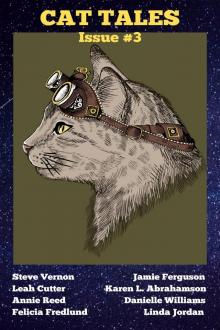 Cat Tales Issue #3
Cat Tales Issue #3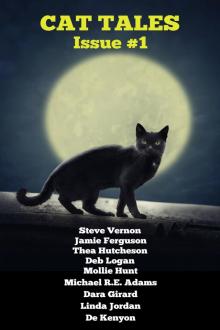 Cat Tales Issue #1
Cat Tales Issue #1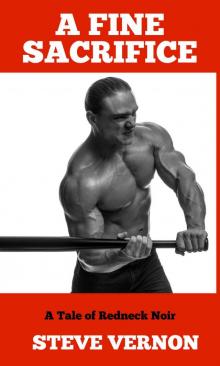 A Fine Sacrifice
A Fine Sacrifice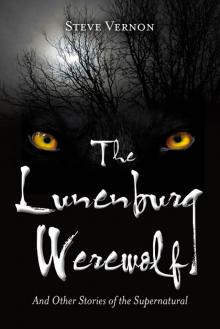 The Lunenburg Werewolf
The Lunenburg Werewolf October Tales: Seven Creepy Stories (Stories to SERIOUSLY Creep You Out Book 1)
October Tales: Seven Creepy Stories (Stories to SERIOUSLY Creep You Out Book 1)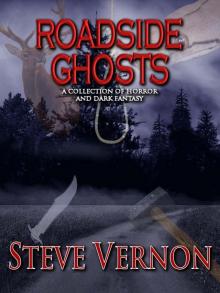 Roadside Ghosts: A Collection of Horror and Dark Fantasy (Stories to SERIOUSLY Creep You Out Book 3)
Roadside Ghosts: A Collection of Horror and Dark Fantasy (Stories to SERIOUSLY Creep You Out Book 3)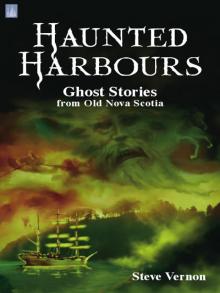 Haunted Harbours
Haunted Harbours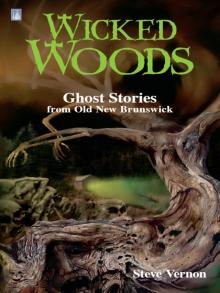 Wicked Woods
Wicked Woods Two Fisted Nasty: A Novella and Three Short Stories (Stories to SERIOUSLY Creep You Out Book 2)
Two Fisted Nasty: A Novella and Three Short Stories (Stories to SERIOUSLY Creep You Out Book 2) A Hat Full of Stories: Three Weird West Tales (Stories to SERIOUSLY Creep You Out Book 9)
A Hat Full of Stories: Three Weird West Tales (Stories to SERIOUSLY Creep You Out Book 9) Bad Valentines: three twisted love stories (Stories To SERIOUSLY Creep You Out Book 7)
Bad Valentines: three twisted love stories (Stories To SERIOUSLY Creep You Out Book 7) Do-Overs and Detours - Eighteen Eerie Tales (Stories to SERIOUSLY Creep You Out Book 4)
Do-Overs and Detours - Eighteen Eerie Tales (Stories to SERIOUSLY Creep You Out Book 4)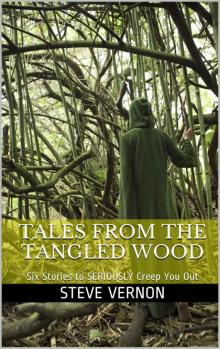 Tales From The Tangled Wood: Six Stories to SERIOUSLY Creep You Out
Tales From The Tangled Wood: Six Stories to SERIOUSLY Creep You Out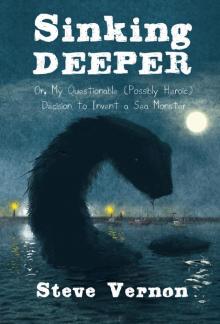 Sinking Deeper
Sinking Deeper Bad Valentines 2: Six Twisted Love Stories (Stories to SERIOUSLY Creep You Out Book 5)
Bad Valentines 2: Six Twisted Love Stories (Stories to SERIOUSLY Creep You Out Book 5)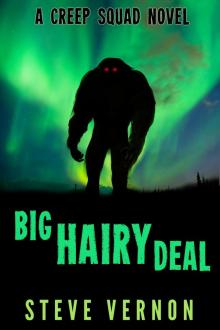 Big Hairy Deal
Big Hairy Deal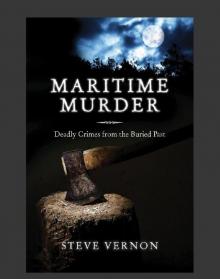 Maritime Murder
Maritime Murder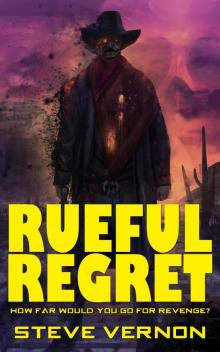 Rueful Regret
Rueful Regret